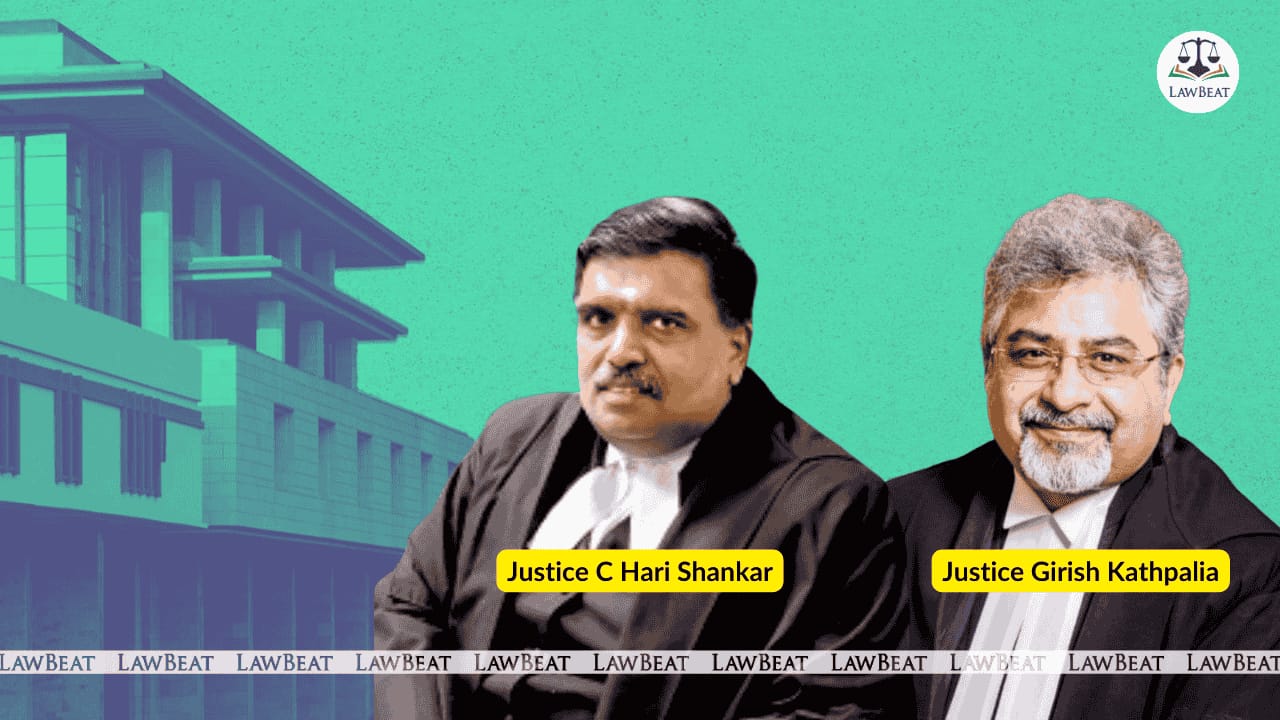'No Litigant Is Allowed To Browbeat The Court': Delhi HC Fines Advocate For Aspersions On Judge

The court pointed out that the petitioner had cherry-picked sentences from the judgment, ignoring the overall analysis, and noted that the judgment, when read in its entirety, clearly shows no error.
The Delhi High Court recently remarked that no litigant can be allowed to browbeat the court while slapping a fine of Rs 10,000 on a practising advocate for casting aspersions on a judge in a recruitment case.
The division bench of Justice C Hari Shankar and Justice Girish Kathpalia rendered the present review petition frivolous and said, "No litigant, much less an advocate appearing as a litigant in person, can be allowed to try to browbeat the court. Of course, the court should not be over-sensitive. But when despite the court repeatedly ignoring such conduct of the litigant and repeatedly advising him to confine his submissions to merits of the case."
"The litigant contumaciously continues efforts to overawe, the least the court should do is to bring that conduct on record. We feel constrained to record such unacceptable conduct of the Review Petitioner, who is a practising Advocate appearing in person," the bench added.
The Division Bench was dealing with a recruitment case in which the petitioner challenged his recruitment conducted by the Indian Space Research Organisation (ISRO) before the Central Administrative Tribunal, alleging that the interview was not conducted fairly, thereby depriving him of the job despite securing the highest score in the written test."
However, the tribunal, in its order, upheld the recruitment process, noting that the petitioner had consciously participated in the selection process. Aggrieved by the tribunal’s order, the petitioner filed the present review petition.
Earlier, the petitioner had filed another review petition, which was authored by the Hon'ble Judge on his last day before elevation to Chief Justice of another court. The petitioner claimed that the judgment was not only incorrect but also resulted in a gross failure of justice due to a 'pure fault of the court'.
Noting that the review petition contained highly outrageous aspersions on the Hon’ble Judge, the bench said, " We took strong objection to the tone and tenor of the petition, so vide order dated 18.10.2024 the review petitioner, expressing regrets sought permission to withdraw the same with liberty to file afresh with temperate language".
During the hearing, the court noted that the petitioner again repeated his conduct, while alleging that the judgment under review was a cut-copy-paste of the impugned order of the Central Administrative Tribunal and that there was a concerted effort at covering up a “scam in government service.
Despite repeated warnings to focus on the merits and refrain from objectionable remarks. The petitioner continued repeating the so-called errors in the judgment and extraneous submissions alleging scams in government service, "The petitioner insisted that we could not reserve judgment and were bound to pronounce the operative portion before him. We also brought to his notice that we were sitting in a Special Bench and had our respective Single Bench matters also to be taken up, but he continued to insist that we should pass the operative part of the order immediately and dismiss the Review Petition," the bench said.
After addressing the said conduct, the court clarified the legal principle relating to review proceedings and said it can only review its own decision if there is an obvious error in the record. "....A review is by no means an appeal in disguise whereby an erroneous decision is reheard and corrected. Review lies only for patent error. Under Order 47 Rule 1 CPC, a judgment. may be open to review inter alia if there is a mistake or an error apparent on the face of the record....".
Therefore, the court was of the view that the petitioner did not raise any irregularity until he was rejected due to his low score and said, "Going a step deeper, none of the so called errors would have a bearing on the final outcome that the present respondent no. 3 having secured the highest and the petitioner having scored the lowest, it is the former who was recruited. The petitioner consciously participated in the recruitment process, wherein the principle of normalization had been described in the vacancy advertisement itself."
Accordingly, the court dismissed the present petition with a cost of Rs.10,000/- to be deposited by the Petitioner with the Delhi High Court Legal Services Committee within one week.
Case Title: RAVI KUMAR V DEPARTMENT OF SPACE AND ORS.
Petitioner: Advocate Ravi Kumar
Respondents: Mr Harish Vaidyanathan Shankar, CGSC with Mr Srish Kumar Mishra and Mr Alexamdar Mathai Paikaday, Advocates
